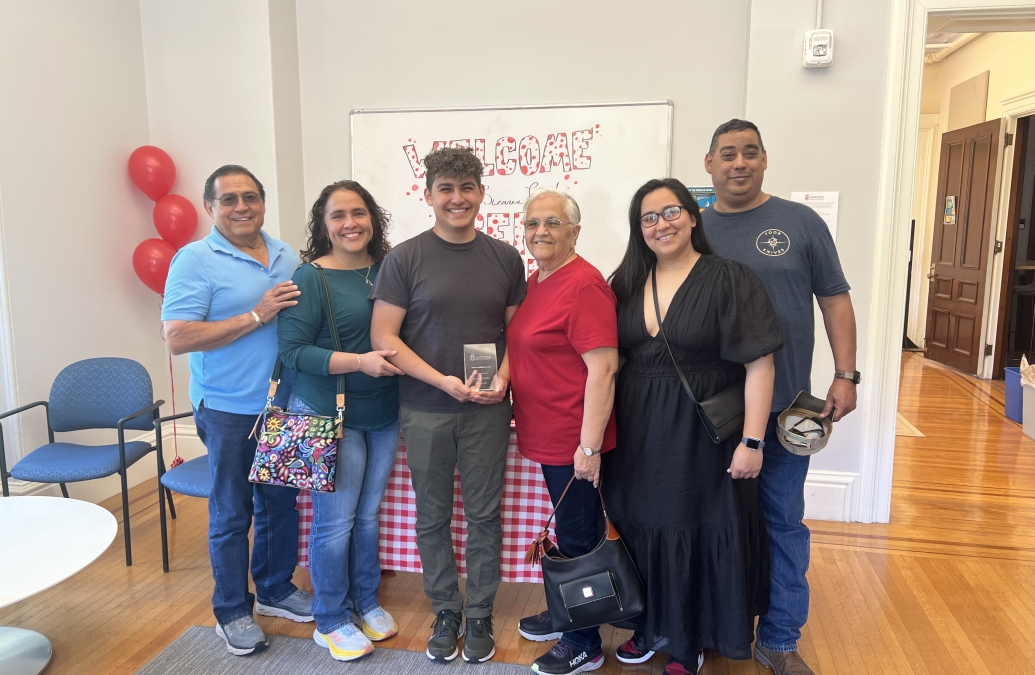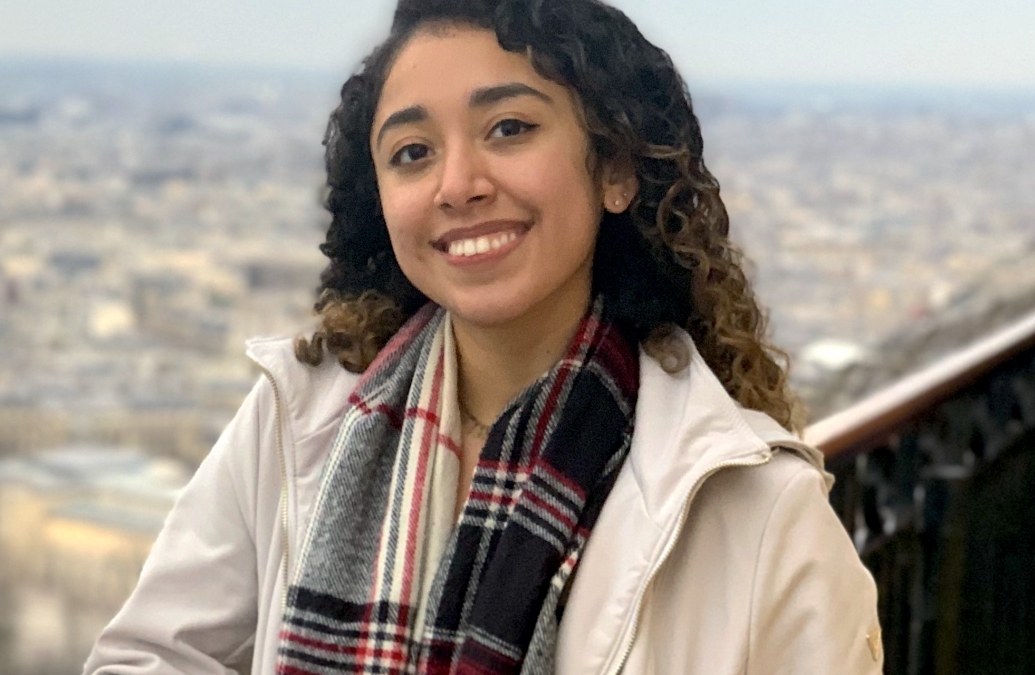Recognizing Swearer's first cohort of graduates from the Engaged Scholarship Certificate (ESC)

Aaron Castillo ‘23, the first student to officially declare ESC, developed an Independent Concentration in Food and Identity. He shares why he chose to pursue ESC, saying it provides “a dedicated space to explore what engaged scholarship means and how I can practice these values in my academic and personal lives.” Equitable work with communities requires “looking at your own biases and preconceived notions…[and] your positionality, privilege, and power.”
Recent ESC graduate, Aiyana Aeikens ‘23, describes how the ESC shaped her experience at Brown, sharing, “The ESC kept me grounded in the people and communities that I cared about. It helped me to remember that I couldn't just do environmental policy in a bubble but rather had to talk to people and think about the on-the-ground effects of different regulations. It made me appreciate and center the knowledge that people with lived experience bring to the table, how it is not supplementary but integral.”

Asenette Ruiz ‘23, says that “Knowing that I was able to work on community-focused and justice-oriented projects when that is often not prioritized (especially in engineering) is reassuring to me and is a powerful reminder that I can do this type of work despite navigating academic or professional spaces that may not value it. This is particularly important to me as I also bring my many identities with me, and it is sometimes rare to see examples of people with similar backgrounds (such as Latinx, first-gen, women of color) as my own doing this type of community-based work. But through my ESC experiences and other experiences beyond Brown, I've seen inspiring examples of this at work in others and myself, which is very motivating.”
Recognizing Swearer's first cohort of graduates from the Engaged Scholarship Certificate (ESC)
The Swearer Center congratulates the graduates of our first cohort from the Engaged Scholarship Certificate (ESC) program. Sponsored by the Swearer Center and the Department of Sociology, the ESC provides an avenue for undergraduate students to investigate public, civic, and/or social justice issues of their choosing through academic study combined with community-based learning, research, and action.
Recent ESC graduate, Aiyana Aeikens ‘23, describes how the ESC shaped her experience at Brown, sharing, “The ESC kept me grounded in the people and communities that I cared about. It helped me to remember that I couldn't just do environmental policy in a bubble but rather had to talk to people and think about the on-the-ground effects of different regulations. It made me appreciate and center the knowledge that people with lived experience bring to the table, how it is not supplementary but integral.”
Each ESC student takes the foundational seminar, SOC 0310: Theory and Practice of Engaged Scholarship. This course has each student define a specific issue as their certificate focus and proposes a set of three experiences — a three-course interdisciplinary elective sequence, a community-based practicum and a capstone — related to that issue.
Aaron Castillo ‘23, the first student to officially declare ESC, developed an Independent Concentration in Food and Identity. He shares why he chose to pursue ESC, saying it provides “a dedicated space to explore what engaged scholarship means and how I can practice these values in my academic and personal lives.” Equitable work with communities requires “looking at your own biases and preconceived notions…[and] your positionality, privilege, and power.” Learn more about how Castillo’s work recently evolved into a collaborative exhibit on food and culture. Presented at the Providence Public Library, the exhibition features contributions from two community artists, Dana Heng and Nafis M. White.
When the ESC was first introduced, Mary Jo Callan, Vice President for Community Engagement and Executive Director of the Swearer Center, stated that “Brown’s commitment to liberal arts education that’s both intellectually rigorous and socially conscious led to the development of this new academic pathway,” and emphasized the importance of having a “community-based mentor as well as a faculty advisor, so they learn from and with community members working on the issue–and ideally also contribute in meaningful ways to that work.“
As the first cohort of ESC alum transitions into their post-college careers, that refrain is shared by many of them as they describe the impactful connections made through their ESC experience. Asenette Ruiz ‘23, says that “Knowing that I was able to work on community-focused and justice-oriented projects when that is often not prioritized (especially in engineering) is reassuring to me and is a powerful reminder that I can do this type of work despite navigating academic or professional spaces that may not value it. This is particularly important to me as I also bring my many identities with me, and it is sometimes rare to see examples of people with similar backgrounds (such as Latinx, first-gen, women of color) as my own doing this type of community-based work. But through my ESC experiences and other experiences beyond Brown, I've seen inspiring examples of this at work in others and myself, which is very motivating.”
Learn more about the introduction of the ESC here. If you are interested in getting involved, visit our program webpage or email [email protected].
ESC 2023 Alumni
Aiyana Aeikens
Environmental health and justice / environmental inequities in the rural midwest
Practicum site: Brown in Washington: Northeast-Midwest Institute
Faculty Advisor: Julie Plaut
Aaron Castillo
Critical research methods
Practicum site: Bonner fellow: Swearer
Faculty Advisor: jesús hernández
Gene Lee
Dissemination of misguided mindfulness-based practices in social media
Practicum site: Cheetah House
Faculty Advisor: Carmine Perrotti
Aila Kassandra Rodriguez
Race, ethnicity, and public policy
Practicum site: Brown in Washington: Brookings Institute intern
Faculty Advisor: Carmine Perrotti
Asenette Ruiz
Intersectional environmental justice & sustainable development
Practicum site: MIT Online Science
Faculty Advisor: Kenneth Wong
Theresa Wagner
Impact of mentorship on students’ educational experiences
Practicum site: Bonner fellow: Inspiring Minds
Faculty Advisor: Carmine Perrotti
Amy Willig
Contextualizing the issue of food accessibility within broader or overlapping matters of environmental and social justice
Practicum site: Kimberton CSA (PA)
Faculty Advisor: Kenneth Wong
